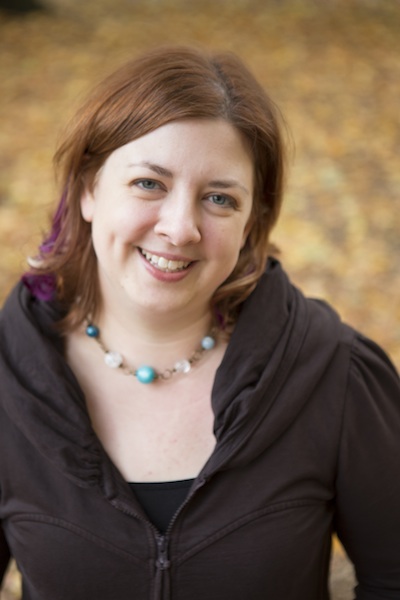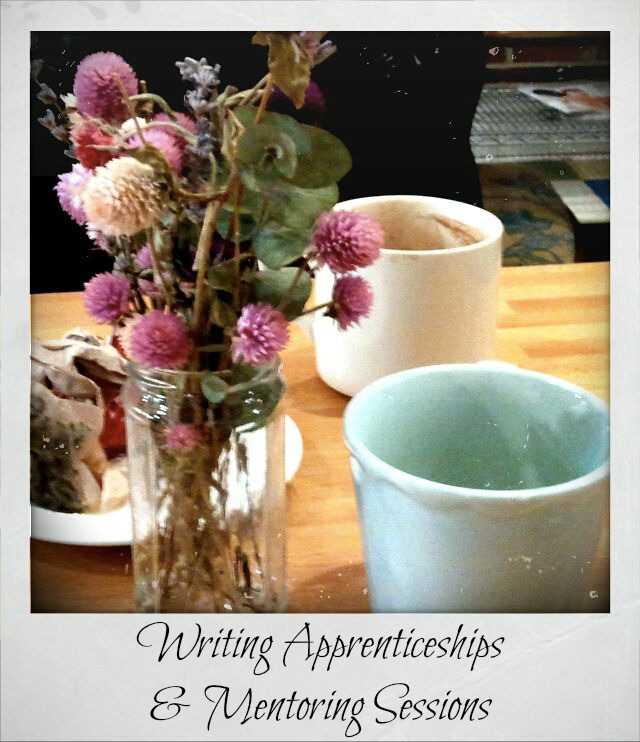Dealing with Writer's Doubt (and the If-Then Loop)
 Saturday, October 4, 2014 at 2:08AM
Saturday, October 4, 2014 at 2:08AM 
There's something just as bad as Writer's Block. In fact, I think it's probably what leads to a lot of cases of being blocked. It's insidious and pervasive, and if you're a writer, you probably know it well. I'm talking about Writer's Doubt.
Let's say that the writing has been hard lately. Say that the doubts about your ability have been boisterous. Say that you've considered giving up this pipe dream of being a writer and buckling down into a more practical field, maybe nursing or dog walking. Say that you feel like a fraud, an imposter, a wannabe.
Say you're stuck in an If-Then Loop:
If I could just take more writing classes....
If I could just get an advanced degree....
If I could just get this story published....
If I could just finish my manuscript....
If I could just get an agent....
If I could just get a publisher....
If I could just get a great review....
If I could just get more publicity....
If I could just figure out what I'm going to write next....
The problem with this If-Then Loop is that the "then" is an empty promise. If this, then what?
We think that if we do or have or achieve something on the list, then writerly fulfillment or fame is just around the corner. Perhaps. But perhaps not.
I've had several conversations lately with various writer friends and clients at various stages of their writing careers. We've talked about facing Writer's Doubt and the ways those doubts chip away at our motivation and self-assurance. The fascinating thing is that I'm hearing the same kinds things from writers across the experience spectrum, from relative beginners to published authors.
So many of us, no matter where we are on this spectrum, keep thinking that the writing will get easier, or that the rewards will somehow increase if we can just close the gap between if and then, between here and there.
But we're all coming up for air a bit bedraggled with the realization that there is no "there" there.
You can't get there from here because there is nowhere to get to.
Here's the best advice I have for both myself and others right now:
I hope you'll work through or just leave behind those doubts you've been feeling. I say "leave behind," as though I know how to do that myself. Let's be honest: Doubt is part of the creative process. Hell, it's part of life, I suppose.
We doubt and worry about the things we care about. Maybe those don't ever really go away, even after we've been practicing our craft for a long time, even after we've seen our own progress and celebrated some successes. But I think we can learn to acknowledge that the doubts are there and then keep on truckin'.
I think that being a writer (or any kind of creator) means that we're always chasing a moving target. The target is somewhere across that gap between our creative taste and our creative abilities that Ira Glass talks about.
As we practice writing, we do narrow the gap, but then the target (which is called how-good-we-want-to-be) moves, so that we never close the gap for long. This can be a source of great frustration, or it can become a source of comfort for us. Maybe we can find a way to use it to stay enthusiastic and in love with our craft. Maybe we can use it to quiet the voices of Writer's Doubt.
Here's the thing: If the gap never really closes, then we're never really failing.
We're just always on the creative journey. We're doing our work, we're diving deeper, taking creative chances, putting in the time to learn and bloom. We keep following the star or ember or distant shimmer that we're always chasing, and we writing it down as best we can in that moment. We keep doing it, we keep doing it, we keep doing it. Doubts and all.
So, you ask: If this, then what?
I don't know. But if not this, then what else?
I can't cure your writer's doubt for you, but I can show you ways to move through it to the other side.
I offer mentoring, coaching, feedback, and editing services for beginning, intermediate, and advanced writers.
If you'd like some support for your writing life and creative work,I'd love to talk with you about scheduling a single writing mentoring session or customizing an ongoing writing apprenticeship for you. Interested in learning more? Please get in touch with me.
 apprenticeships,
apprenticeships,  mentoring,
mentoring,  writing,
writing,  writing life,
writing life,  writing tips
writing tips 


